Up until around a decade ago, funeral arrangements were quite simple:
Funeral directors met the family members, received the body, embalmed it, placed it in the casket, the viewing happened, then the funeral, and they buried it 6 feet underground. Every time.
But innovation is always hot on the trail of tradition. And as the cost of funerals skyrocket and consumers become more climate conscious, it is no wonder that many people are considering more affordable, sustainable, eco-friendly burial options.
One alternative to conventional burial in a casket is a natural burial, also known as green burial. With a natural burial, the body is buried directly in a grave without a traditional casket.
There are no federal or state laws requiring bodies to be buried in the ground in a casket or coffin. However, most cemeteries will refuse interment without a “suitable enclosure” for the deceased. In these cases, a funeral home that provides natural burial services will be required.
So, while it’s legally possible, it’s not always a practical option. If you’re planning your burial, read on to learn:
- The factors that determine whether you can be buried without a casket,
- Where you can be buried without a casket (including interactive map),
- The pros and cons of natural burials,
- Other alternatives to a traditional burial.
In This Article
Factors That Determine Whether Someone Can Be Buried Without a Casket
Federal Regulations
If you’re planning on being put in the ground without a coffin or casket, the first question you need to ask yourself is whether it’s legal in your country.
For example, take Ireland. From 1888 to 2013, it was illegal to bury a body without first enclosing it in “a coffin of wood or some other sufficiently strong material.”
Governments and regulators care about this stuff.
Why?
The official position from most relates to health, safety, and water quality. There are many bacteria and other harmful pathogens associated with dead bodies.
But it’s not like wood, metal, or steel caskets are waterproof. They still decompose. Even concrete burial vaults leak.
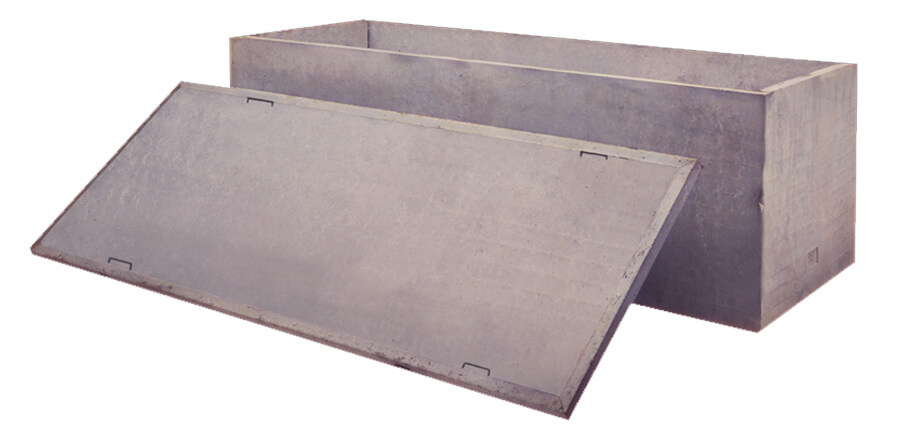
And if health was the issue, we wouldn’t be continuing to embalm bodies with toxic formaldehyde (that only really keeps you fresh for the funeral.)
So it’s not entirely clear where the concerns with casket-free burial come from.
Regardless, in recent years, countries have loosened their regulations. While this was primarily to accommodate adherents to Islam, who are traditionally buried without any container, in a shroud, it has also opened up the availability of natural burials to all regardless of their personal beliefs.
United States
In the USA, no federal regulations prohibit burial without a casket. The Federal Trade Commission’s Funeral Rule requires all funeral homes to offer a direct option that does not require a casket for burial. A simple container, such as one made of cardboard, will suffice.
United Kingdom
In the UK, burial without a casket is legal as long as the body is “decently covered” with a shroud, wicker basket, or another suitable burial container.
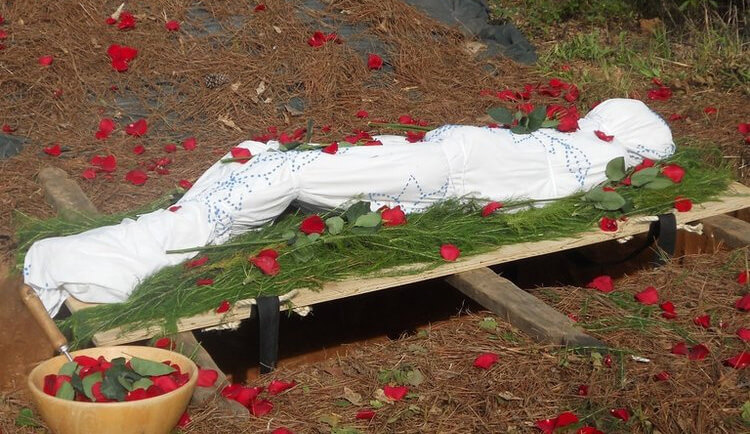
Australia
In Australia, you need approval from your state’s health authority for a green burial. For example, in New South Wales, the Secretary of Health will grant consent based on the applicant’s “culture, personal beliefs, traditions, and religious practices.”
Canada
In Canada, you can have a green burial subject to provincial and territorial rules.
Naturally, every country’s funeral laws will vary. However, most countries worldwide now allow burial without a casket where possible. Check your government’s official websites to find the relevant law in your country.
State Laws
Like in Australia and Canada above, the laws relating “disposition of human remains” in the USA are delegated to the States.
State laws are regularly amended, but as of 2022, no state law directly prevent the burial of a deceased person without a casket.
This means that natural and green burials are legal throughout the USA.
If you want to see the most up to date information for your state in particular, I recommend checking out Nolo’s breakdown of burial and cremation laws by State. But in short, whether it be Texas, California, South Carolina, North Carolina, or anywhere else in the USA – casketless burials are allowed.
In the past, there were exceptions. For example, until recently, Massachusetts would require burial vaults for all bodies placed in a grave. However, this requirement is no longer in place. The same applies in Louisiana.
What About Embalming?
There are no state laws requiring bodies to be embalmed. However, it is a rule of thumb that most states require that bodies be buried, cremated, embalmed, or refrigerated within 24 hours of death.
Religious Considerations
Some religions disallow burial without a casket, whereas some almost require it.
For example, some Christians, including traditional Catholics, believe in the “resurrection of the body” doctrine.
The belief is that when Jesus returns, he will raise those who have died on earth and return them to their physical bodies. It makes sense then that the Catholic church “earnestly recommends the pious custom of burial be retained” and that the body be protected even in death. A casket burial provides a level of that protection.
On the other hand, religions like Islam and Judaism do not require coffins at all. In Islam, bodies are wrapped and buried in white cloth. At Jewish funerals, the body is buried in a shroud (known as a Tachrichim).
Cemetery Restrictions
So it’s not required by law, and your pastor has given you the thumbs up. What’s the catch?
The catch is: Will your cemetery allow it?
Most conventional cemeteries do not offer natural burial plots. They may have specific requirements for what types of containers a body must be placed in. A “suitable container” for one cemetery might not be the same as a “suitable container” for another.
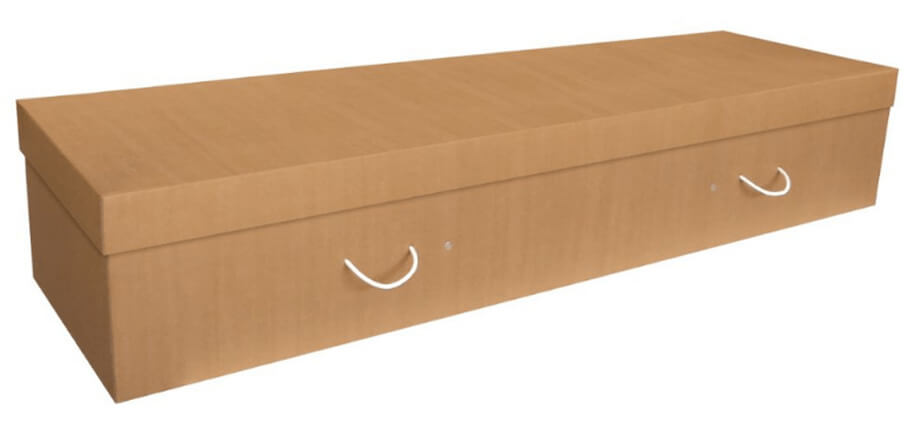
For example, while state law in New York allows using cardboard and canvas burial containers to hold a deceased’s body, not all cemeteries in New York will accept them. This often due to a funeral director’s concerns for the deceased’s loved ones.
Further, some cemeteries require that the body be put in a burial vault to protect the structural integrity of the cemetery.
As long as a funeral directors and cemeteries comply with the FTC’s funeral rule, they can place these restrictions.
Even if they are not compliant with the funeral rule, rules are only so good as they are enforced.
Thankfully, the funeral industry is moving fast, and every year the number of green burial options and natural burial sites increases:
Where to Be Buried Without a Casket?
Before proceeding, a distinction needs to be made between a “natural”/” green” burial and the catch-all phrase “burial without a casket.”
A natural or green burial refers to the interment of a body in the ground in a way that allows the body to decompose naturally. Traditional caskets do not decompose appropriately, so they are not used. Sometimes green caskets are used.
“Burial without a casket” means what it says on the tin.
If you want to be buried without a casket, you first need to be looking for a green burial cemetery. Thankfully, there are now over 170 of these in the United States alone:
Natural Burial Cemeteries – State by State
The Green Burial Council is a non-profit organization founded in 2002 that keeps a directory of certified green or natural burial grounds and funeral homes.
If you are looking for a natural burial cemetery in your state to avoid the use of a casket, you can refer to the interactive state by state maps below that show your options. You can bury a body without a casket at any of these locations.
The Green Burial Council has certified cemeteries across North America, including many Canadian Provinces such as British Columbia, and all US states except Arizona, Wyoming, Idaho, Montana, North Dakota, Iowa, Nebraska, Kansas, Mississippi, Louisiana, and Alabama.
Interactive map displaying green burial cemeteries
The Green Burial Council also has certified funeral homes and other funeral products in every state except Idaho, Nevada, Wyoming, North and South Dakota, Nebraska, Kansas, Louisiana, Mississippi, Alabama, and Kentucky.
Interactive map displaying green funeral homes
If you can’t find a natural burial option on either of these maps that works for you, I also recommend checking out the alternative providers endorsed by US Funerals Online.
What If There are No Natural Burial Cemeteries Near Me?
Here’s why I made the distinction between natural burials and “”burials without a casket”:
Not everyone wants to a casketless burial because they care deeply about the environment.
If the environment is what you care about, finding a Green Burial Council certified provider is great because they have high standards and will save you from greenwashing and misuse of terms like “biodegradable materials” and “non-toxic.” They only certify providers compliant with the FTC’s “Green Guides.”
But if you don’t care so much about these things, you have other alternative burial options if you can’t find a cemetery for green burials near you.
Direct Burial
First, as pointed out above, all funeral service providers in the USA must offer direct burial. This involves both providers of traditional casket burials and green burials.
Even if they don’t advertise this as an option, you are entitled to a direct burial with a coffin or casket of your choice under the FTC’s funeral rule. This includes “caskets” that don’t meet the traditional definition of a casket, including biodegradable containers and appropriately sized cardboard boxes. You may wish to ask your local funeral home about this.
Home Burial
If you can’t find a flexible traditional cemetery, you can also consider burying the body at home on your own property or on other private land (e.g. a few acres of rural land with the owner’s consent).
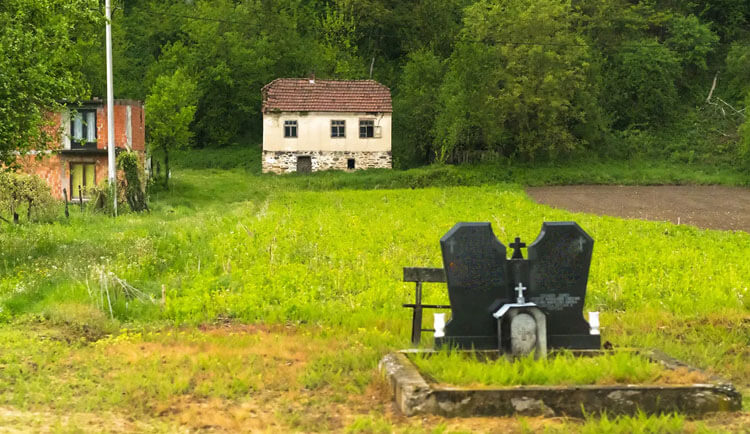
It goes without saying, please do not bury a body on private property without speaking to an attorney licensed to practice in your region. You must check your local zoning laws and regulations and contact your local government and authorities – it may require designating part of your land as a family cemetery.
Pros and Cons of Natural Burials
Just because you can have your dead body put in the ground without a coffin doesn’t necessarily mean it’s the right choice for you. There are several factors you should consider before making a decision:
Pros of Natural Burials
Financial Reasons
Caskets are one of the most significant funeral service costs. Even the best affordable caskets on the market cost close to $1,000.00. Standard funeral home pricing can be closer to $3,000.00.
Eliminating this expense can be significant.
Furthermore, bodies that are buried without a casket are not typically embalmed. This is another major financial reason many people choose natural burial.
It Is Better for the Environment
Traditional casket burials are damaging to the environment. Toxic chemicals from embalming fluids seep into the land. Manufacturing coffins contributes to deforestation and emits carbon. Even cremation emits a significant amount of pollution into the atmosphere, including mercury and carbon dioxide.
The damage is so significant that there is growing interest in the green burials movement centered around minimizing the damage caused by traditional burial and promoting green funerals. In 2020, Jeremy Ciliberto of Catacomb Culture gave an inspiring TEDx Talk on this subject:
Forgoing a casket, or choosing a biodegradable option, is better for the environment. It allows the decomposition process to happen in a way that helps rather than hurts the earth. This is especially the case at conservation burial sites designed to preserve habitats.
It Is Poetic
On a spiritual and symbolic level, a natural burial is one that brings us full circle. Ashes to ashes, dust to dust. In the same way the earth provides for us while we are living, being buried without a casket in natural cemeteries allows the nutrients in our bodies to provide for the earth in our death.
Cons of Natural Burials
No Viewing/Wake
Because of the laws relating to the “disposition of human remains” and the fact that embalming is not a standard part of natural burials, burial without a casket is a fast process. It will happen within 1 – 3 days of passing away.
This means there is unlikely to be time, and the body is unlikely to be in the right condition for a traditional viewing, wake, or funeral ceremony. This is unfortunate, because these events can often be an import part of the grieving process for the deceased person’s family members and loved ones.
While a memorial service can act as a substitute, it is not always the same.
Location
Most green cemeteries are far from easy locations to visit.
Coupled with the fact you are unlikely to have a headstone, this can leave loved ones of the deceased deprived of a symbolic location at which they can pay their respects and say goodbye in the time they might need to do so.
Respect for the Deceased
If you are planning your own funeral service and you want to be buried without a coffin, that is your right.
However, suppose you are planning a funeral for someone who has died. In that case, burial in this fashion can be seen by some as disrespectful, cheap, and lacking in care.
It is important to consider if it is what they would have wanted.
Alternatives To a Casket
If, after considering the pros and cons of natural burial, you decide it’s not for you, it’s important to know that there are many other options. It is not just a case of burial with a casket or burial without.
Alternative funeral arrangements include:
Direct Cremation
Green burials are an eco-friendly alternative to cremation.
However, if your main concern with traditional burial is the cost, you may wish to consider direct cremation. There are no funerals or other services with a direct cremation, and you are not required to purchase a casket; the dead body is transferred directly to the crematorium and cremated without fanfare.
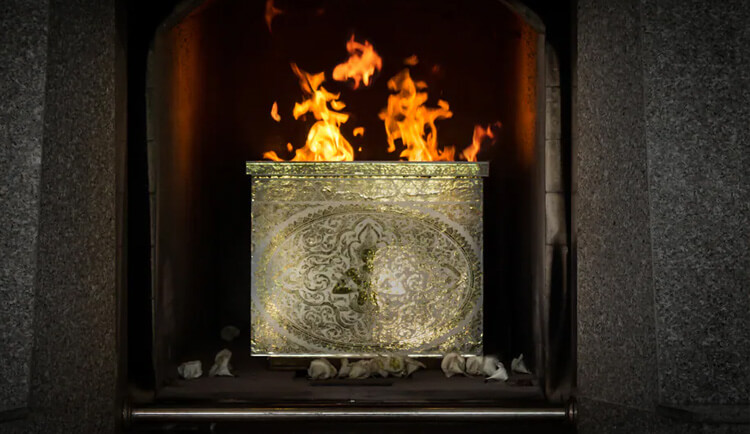
A direct cremation can be very affordable, with some of the cheapest providers charging only $650.00. And just because there is no funeral doesn’t mean you can’t say goodbye; many people find just as much meaning in the scattering of the ashes, or turning the ashes into cremation diamonds.
If you want, you can even have your cremated remains turned into the basis for a new tree with a living urn.
Body Donation
Another serious option to consider is donating your body and organs.
It is easy to sign up and is a way you can save and enhance lives, even in death. Thousands of people are waiting for organs every year. Like with natural burial, there is almost a poetic aspect to it.
There is no cost associated with organ donation, and you can pass knowing you are doing a great thing for the world.
Burial at Sea
Without the cost-saving benefits associated with the other options discussed on this page, burial at sea is another special way your body can be buried without a casket. This form of burial is regulated by the Environmental Protection Agency.
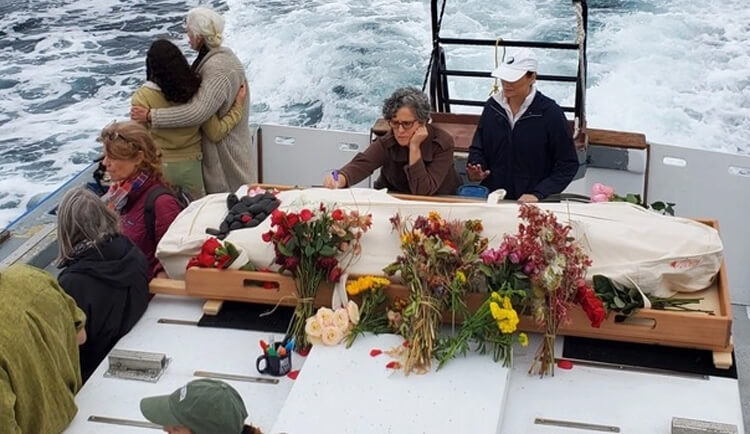
There are many providers available in countries across the world. You can hold a service on the boat, and your body will be wrapped in a burial shroud of natural fiber and dropped into the ocean.
Other alternatives to being buried with a casket you can consider are:
- Homemade body containers made out of wicker, felt, or any other material,
- Burial of an urn after the cremation,
- Sky burial (depending on your country),
- Reef ball burial, and
- Water cremation.
You could also consider asking a local funeral director what specific options are available in your region.
The Bottom Line
Legally, you can be buried without a casket.
Practically, it is more complicated.
Once you have found a cemetery specializing in natural burial, you will have to ask – is it really the best option for you?
There are many ways in which the human body can be dealt with after death. Each option will only suit some.
Regardless, it is clear that the use of accessible, sustainable, and cheaper alternatives to typical casket burial is growing every day.
If you have any further questions about attending a natural burial or anything else beyond life, please feel free to get in touch or leave a comment below.

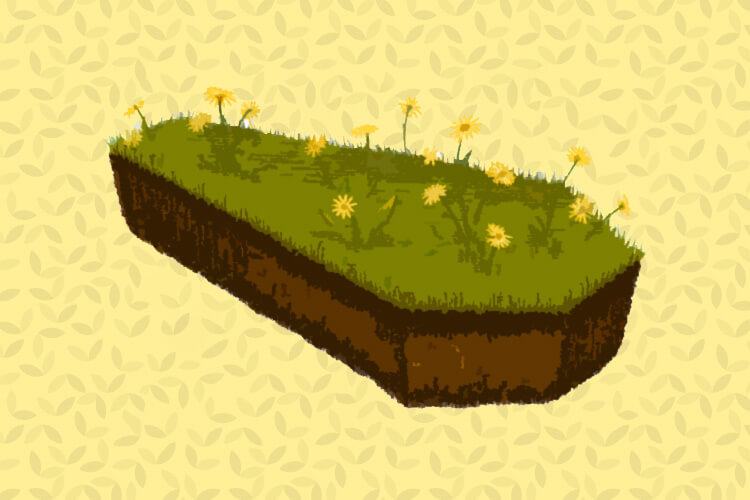


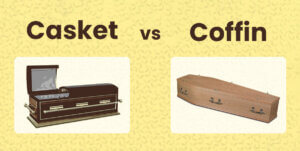


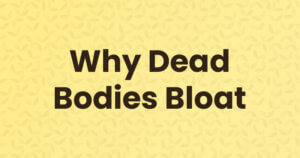



4 Responses
Can the dead be buried without a casket on state or federal land, such as out in the middle of the woods or desert?
Hi Dan.
Depends on your state, but usually no unless you have consent from the relevant authority.
James
How many bodies can be buried per acre on a green burial site?
Hi Robert.
Legally, it will vary by your region.
The absolute maximum most green cemeteries will go up to is 300 per acre, which is almost 4x less than traditional cemeteries.
And many green cemeteries go even lower!
That said, I wouldn’t be surprised to see this number increase as green burial cemeteries become more popular.